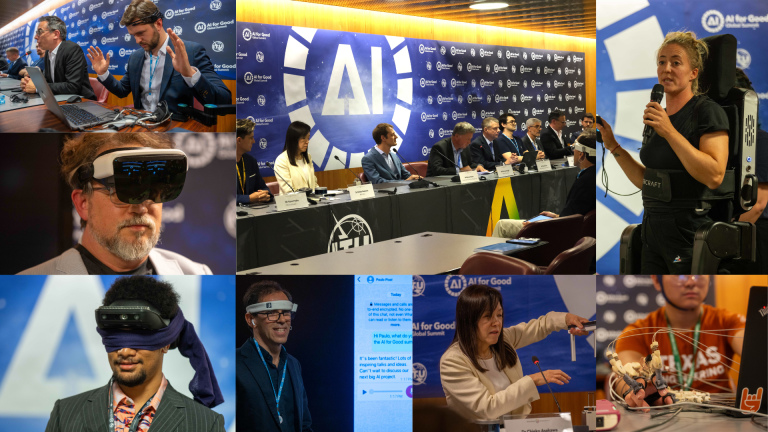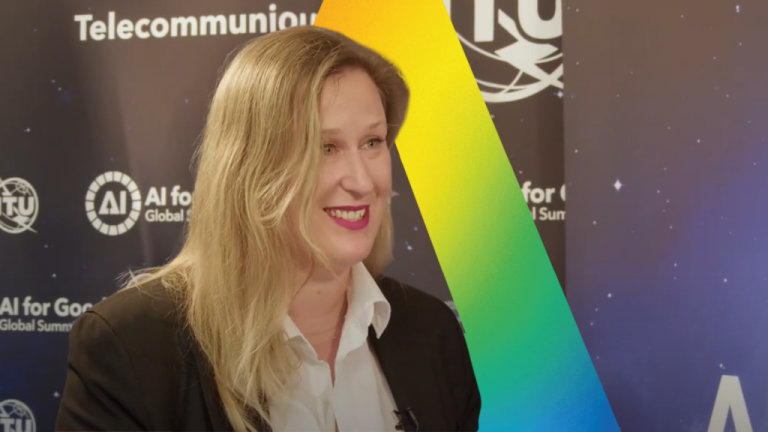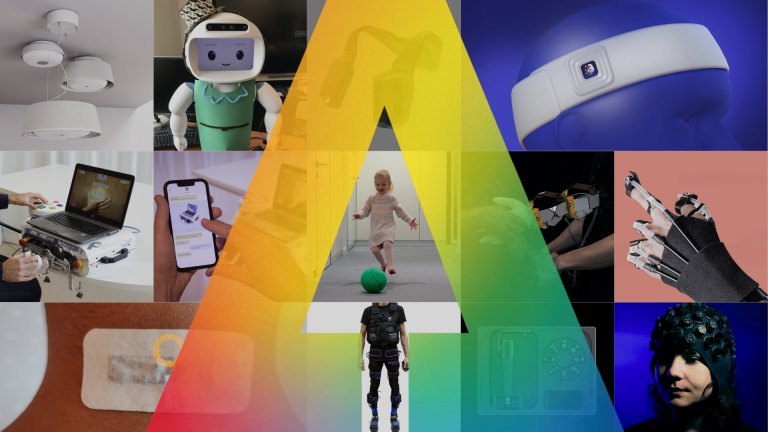“Exploring the Intersection of Neurotechnology, Artificial Intelligence, and Human Rights: A 2023 Perspective”
Neuroscience, AI, and Ethics: A New Era of Understanding
At the vibrant crossroads of neuroscience, artificial intelligence (AI), and ethical dilemmas, an extraordinary transformation is unfolding. The merging of neurotechnologies and AI signals the dawn of a groundbreaking chapter in our comprehension of brain functionality, promising revolutionary advances in therapeutics, assistive technologies, and human-machine interfaces across various industries. However, as these advancements emerge, pressing concerns regarding human rights and dignity also come to the forefront.
The recent AI for Good webinar titled “Neurotechnologies, AI and Human Rights” illuminated the sensitive balance between innovation and ethical responsibility. Esteemed specialists from the Mexican Association of Neuroethics, IBM T.J. Watson Research Lab, the United Nations, and Zürich University of Applied Sciences convened to forge a pathway that prioritizes progress while protecting vital human values.
Nurturing Empathy in Neurotechnology
In the awe-inspiring territory where neuroscience merges with technological innovation, nurturing empathy is of utmost importance. Grasping and valuing human experiences, emotions, and diverse viewpoints is essential in shaping the ethical framework surrounding neurotechnological progress.
Dr. Karen Herrera-Ferrá and her team at the Mexican Association of Neuroethics (AMNE) thoroughly investigate domestic medical, legal, social, and ethnocultural influences, including patterns of violent behavior. They also explore global neuroethics, examining cultural variations and human rights in relation to the brain and mind.
During the session, Dr. Herrera-Ferrá highlighted the crucial need to recognize cultural and societal nuances in understanding fundamental human characteristics like emotions, free will, and identity. With only about 32% of the world’s population residing in countries leading in neurotechnology advancements, there is a substantial risk of trivializing the rich variety of human experiences and values. Such trivialization could obstruct the comprehensive and inclusive evolution of neurotechnologies, which must authentically serve and resonate with all of humanity.
“The ways we perceive human traits will influence our attitudes toward the advantages or dangers associated with replicating these traits in AI,” remarked Karen Herrera-Ferrá, founder and former president of AMNE.
Beyond the Horizon: The Dual Nature of Neurotechnologies in Healthcare
At this crucial juncture in the evolution of healthcare, the rise of neurotechnologies and AI unveils a landscape full of transformative possibilities while navigating complex ethical considerations. This dynamic environment embodies a duality that significantly influences innovation, revealing both the advantages and drawbacks that accompany these advancements.
Dr. Sara Berger from IBM Research shared insightful revelations about the positive impacts neurotechnologies and AI can have on healthcare. She presented a compelling vision of new diagnostic tools, groundbreaking therapeutics, and a deeper understanding of human experiences, fueled by these cutting-edge technologies. However, amidst these revolutionary possibilities, Dr. Berger brought attention to ethical concerns—including privacy issues, autonomy, potential manipulation, and biases—that underscore the necessity for responsible development and application of these innovations. Her discussion clearly highlighted the essential role of ethical awareness in steering these advancements toward a morally sound healthcare landscape.
“With all of this complex data, we aim to use AI to enhance our understanding of the nervous system, and this will only expand,” stated Sara Berger, Research Staff Member at IBM Research.
Unlocking Minds: A Global Dialogue on Human Rights and Neurotechnologies
The panel underscored education as a vital component in cultivating an understanding of neurotechnologies and human rights principles. The speakers skillfully acknowledged the inherent tensions between fostering innovation and imposing regulations but passionately advocated for a progressive governance approach—one that anticipates challenges instead of merely responding to them.
In this context, Dr. Milena Costas Trascasas from the UN Human Rights Council’s Advisory Committee shared updates on ongoing international initiatives aimed at developing governance frameworks for neurotechnologies. She underscored the significance of human rights standards in ensuring these technologies serve humanity’s benefit while minimizing potential abuses.
“While neurotechnologies have the potential to improve mental health and enhance scientific knowledge, proactively identifying and addressing threats will be crucial to guide their development and use for public good while honoring human values and global diversity,” added Milena Costas Trascasas, Chair of the UN Human Rights Council’s Advisory Committee.
The panelists concurred that tackling the intricate issues surrounding neurotechnologies necessitates a multi-stakeholder, multi-level approach involving not only technology developers but also policymakers, regulators, civil society, and communities.
The AI for Good webinar illuminated the responsible development of neurotechnologies and their intersection with artificial intelligence. It emphasized the imperative for proactive governance, consideration of cultural diversity, respect for human rights, and the engagement of various stakeholders to successfully and beneficially incorporate these technologies into society.
Although advancements in AI and neuroscience promise immense benefits, they equally evoke legitimate concerns regarding their potential implications on human dignity and rights. In response to these challenges, voices from academia, international organizations, and the private sector have called for principled governance in this burgeoning arena. The webinar sought to delve into the ramifications of integrating AI with neurotechnologies, shedding light on current initiatives and strategies designed to promote their development in alignment with established and emerging frameworks to safeguard human rights.
Watch our full video:






